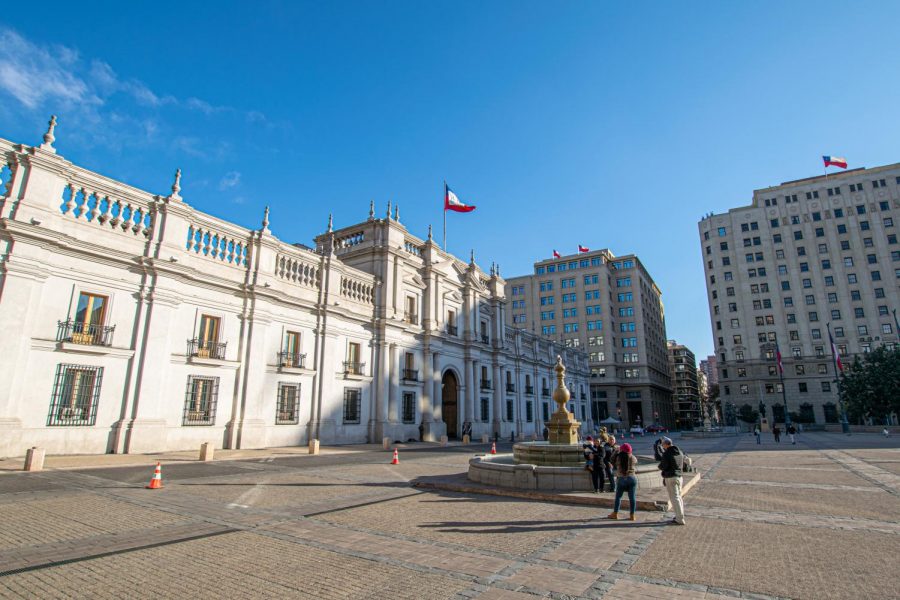Income Inequality Meets Climate Change: The Defining Global Issue of 2020?
La Moneda Palace, the seat of the President of Chile, is the site of ongoing protests largely in response to widespread income inequality in the South American nation.
February 11, 2020
A variety of pressing world issues, such as concerns pertaining to war, peace, good governance and climate change, are dominating international relations right now. One issue may be considered the crux of these concerns: income inequality. Protests against perceived economic injustice have occurred in many countries within the last year, and it seems unlikely that these movements will go away any time soon.
Middle-class wages in much of the developed world have stagnated, but many wealthy individuals are becoming wealthier. Externally, the rise of climate change runs the risk of drastically increasing income inequality between the developed and the developing world.
Much of the developing world is far more likely to be vulnerable to the effects of climate change. Many developing countries are in regions with warmer climates and lack the money and/or infrastructure to fight climate change. Income inequality affects the developed world as well, including the greater New York City area, as low-lying areas of New York may be at heightened risk of sea level rise in the future.
It remains to be seen whether concerns of income inequality among the general public will become more prominent in developed or developing countries. In the United States, one of the most developed countries in the world, some Democratic presidential candidates like Bernie Sanders have made income inequality a signature campaign issue.
The film “Parasite,” which just won four Academy Awards, is a dark comedic satire about the economic inequality between a poor family and a wealthy family in South Korea. Yet despite this increasing awareness of inequality in the developed world, there is no clear solution to fix it.
And despite his campaign calling New York “a tale of two cities,” income inequality in New York City has not really been reduced under the tenure of incumbent Mayor Bill de Blasio.

The Universidad de Chile metro station in downtown Santiago. The nationwide protests against income inequality first began in October 2019 when students led mass takeovers of metro stations to protest fares.
While good governance should promote the social safety net, access to decent-paying jobs will be necessary to ensure financial stability in the long run of lower- and lower-middle-income individuals. Ensuring access to decent-paying jobs will have to be done through both the public and private sectors, at least to a certain extent.
In the developing world inequality often tends to be even starker than in much of the developed world. A small but notable elite class in countries such as India, South Africa and Brazil enjoys a very high standard of living. Yet it would not be an optimal investment for developed countries to fund assistance specifically to fighting income inequality among developing nations that differ from normal foreign aid. Instead, foreign aid should be combined with economic assistance to fight against the most damaging effects of climate change.
Not only will this be necessary to stop the most damaging effects of climate change, but it will also mitigate stratospheric inequality that could further heighten because of environmental effects. This is especially important considering that the developed world will likely see large-scale migration from developing areas hit especially hard by climate change. By tying an understanding of climate issues to economic justice, the developed world can try to dampen the potentially exacerbating inequality that has concerned many individuals in the past decade.












